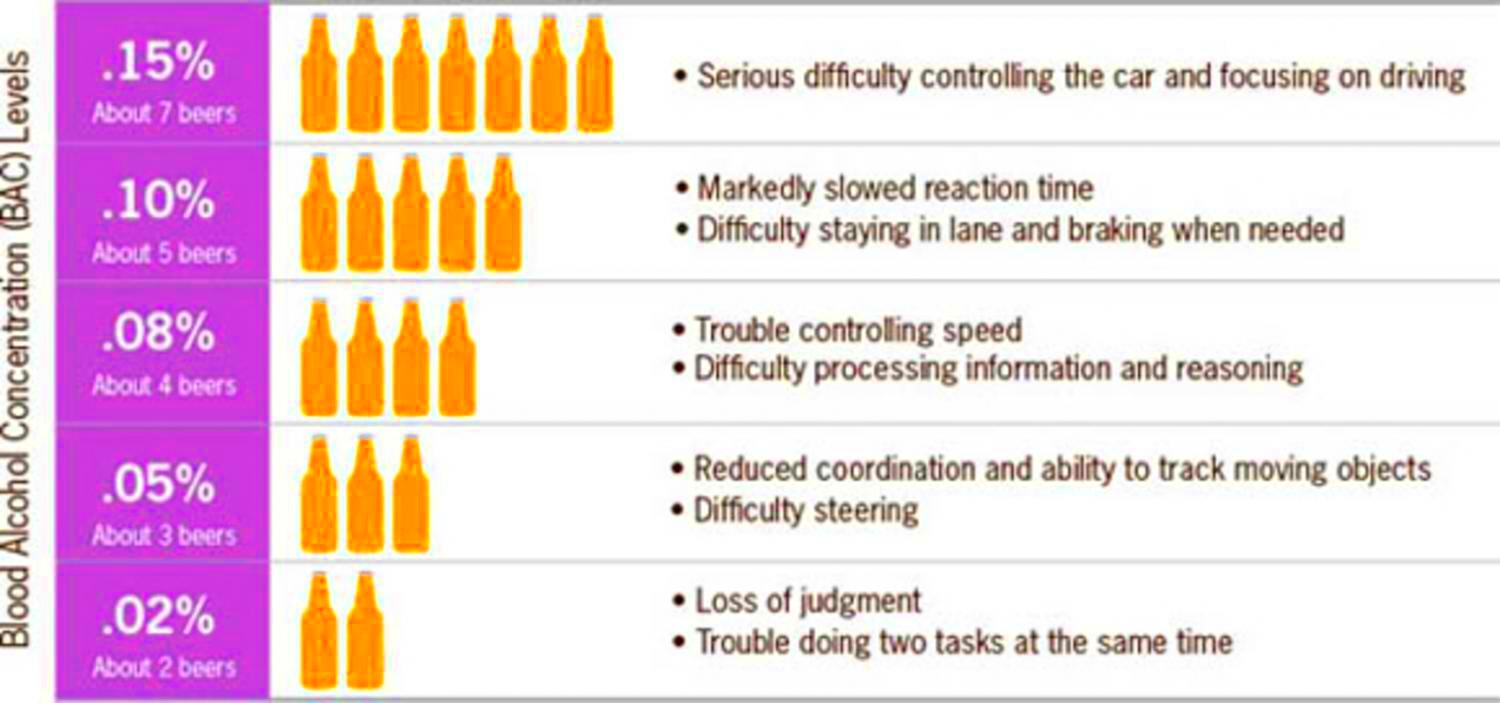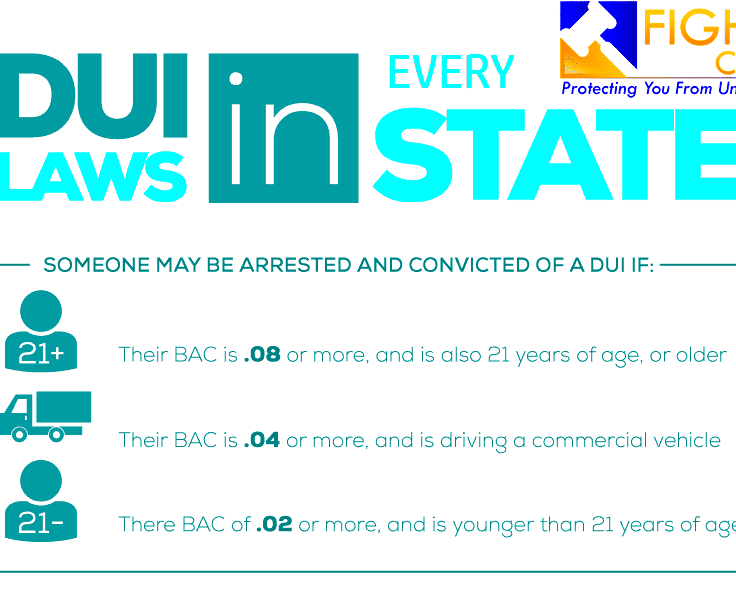A Guide to Federal DUI Laws
Driving while impaired (DUI) is taken seriously in the United States. While DUI laws vary by state there are federal regulations that apply in specific situations. Its essential to grasp these federal rules if you want to navigate the complexities of impaired driving. Federal DUI laws mainly come into play when incidents occur on property or involve federal employees. This encompasses places like national parks, military bases and federal highways. Federal agencies enforce these laws and the consequences can be significant. So it’s crucial to stay informed and be ready in case you ever find yourself facing this scenario.
What Constitutes a Federal DUI?

In order to face federal DUI charges the incident usually needs to take place on land or fall under federal jurisdiction. This can encompass situations such as
- National Parks: Driving under the influence within the boundaries of a national park.
- Military Bases: Being caught driving impaired on a military installation.
- Federal Highways: Violations that occur on highways managed by federal agencies.
Federal DUI regulations typically align with state laws in terms of core principles but may impose extra limitations or factors owing to the scope of federal jurisdiction. For example receiving a DUI charge on a military installation could result in both legal repercussions and disciplinary measures within the military introducing complexities into the legal proceedings.
Penalties for Federal DUI Offenses
The consequences for driving under the influence DUI at the federal level can be severe and differ based on the details of the situation. Typical punishments consist of
- Fines: Federal DUI fines can be substantial, often exceeding state fines.
- Imprisonment: Jail time can range from several months to a few years, depending on the severity of the offense and any prior convictions.
- Probation: Instead of or in addition to jail time, individuals may face probation, which includes strict reporting requirements and possible additional conditions.
- License Suspension: A federal DUI conviction may lead to the suspension or revocation of your driver’s license, even if you were driving on a federal property.
I remember a situation where a family member of a friend dealt with repercussions after being arrested for driving under the influence in a park. The mix of fines and an extended probation term served as a wake up call about the seriousness of federal DUI regulations. Dealing with these laws can be challenging but it’s essential to grasp the penalties involved and seek appropriate legal counsel to manage the situation, effectively.
Federal DUI vs. State DUI Laws
DUI laws can vary between federal and state levels creating a distinction that may seem significant. Federal DUI laws apply to incidents on property or those involving federal jurisdiction. On the other hand state DUI laws govern offenses that take place within state borders. Understanding these differences is crucial as they can greatly affect the legal repercussions you could face.
Here’s a breakdown of the key differences:
- Jurisdiction: Federal DUI laws apply to federal properties like national parks or military bases, whereas state laws cover everything else within state limits.
- Legal Process: Federal DUI cases are handled by federal agencies and courts, which can mean more complex legal procedures compared to state-level cases.
- Penalties: While both systems impose fines, jail time, and other penalties, federal penalties can be harsher due to the nature of federal oversight. State laws might offer more leniency, depending on the jurisdiction.
In my personal journey I remember a time when a buddy of mine found himself in trouble with the law for driving under the influence in a national park. Dealing with the federal legal system was quite a challenge compared to handling matters. The way the federal court operated was more strict emphasizing the significance of knowing which jurisdiction is relevant to your situation.
Factors Affecting Federal DUI Charges
The outcome of federal DUI charges can be impacted by several factors. Being aware of these factors can assist you in better preparing for your situation if you ever face federal DUI charges. Here are some important aspects to consider.
- Location of the Offense: Whether the DUI occurred on federal property, such as a military base or national park, is crucial. Federal laws are enforced only in these specific areas.
- Blood Alcohol Concentration (BAC): The BAC level at the time of the offense can impact the severity of the charges and penalties. A higher BAC might lead to more severe consequences.
- Prior Offenses: Previous DUI convictions can exacerbate the situation, leading to harsher penalties and a more complex legal process.
- Presence of Aggravating Factors: Factors like reckless driving or causing an accident while under the influence can elevate the seriousness of the charge.
There was a time when a relative of mine got into trouble due to a DUI incident on a highway. The situation was complicated by a blood alcohol content and a prior offense. These elements play a role in shaping the course of a federal DUI charge.
Defenses Against Federal DUI Charges
Dealing with federal DUI charges can be tough, but being aware of your defenses can really help. Here are a few usual defenses employed in federal DUI cases.
- Improper Procedure: If law enforcement did not follow proper procedures during the arrest or testing, it could impact the validity of the evidence.
- Faulty Testing Equipment: Challenging the accuracy of breathalyzers or blood tests can sometimes lead to reduced charges or even dismissal.
- Involuntary Intoxication: If you were unknowingly intoxicated due to medication or other substances, this can be a valid defense.
- Unlawful Stop: If the traffic stop that led to the DUI charge was not legally justified, it might affect the outcome of the case.
I recall a situation where a buddy successfully questioned the accuracy of the breathalyzer test leading to a reduction in their charges. Strong defense tactics can have an impact on the result of a federal DUI case making it crucial to seek advice from an attorney to discuss your choices.
Recent Changes in Federal DUI Legislation
Federal DUI laws are not set in stone; they change over time to tackle new challenges and enhance enforcement. Recent updates in federal DUI regulations show a heightened focus on safety and more severe consequences for offenders. Keeping up with these changes is crucial for anyone dealing with the intricacies of federal DUI laws.
Here are some of the notable recent changes:
- Increased Penalties: Recent legislation has raised the minimum fines and maximum imprisonment terms for federal DUI offenses. This shift aims to deter impaired driving by imposing harsher consequences.
- Enhanced Testing Requirements: New regulations mandate more rigorous testing procedures and protocols, ensuring that DUI tests are more accurate and reliable.
- Greater Focus on Repeat Offenders: Laws now impose stricter penalties on repeat offenders, including longer prison sentences and mandatory rehabilitation programs.
- Improved Technology for Enforcement: Federal agencies are adopting advanced technology, such as more accurate breathalyzers and automated monitoring systems, to better detect and prosecute DUI offenses.
Based on what I’ve witnessed these adjustments can really make a difference. A friends family member recently dealt with a DUI accusation and was taken aback by the hefty penalties and compulsory rehabilitation courses brought about by the updated laws. Staying informed about these developments is crucial for grasping the extent of possible repercussions.
How to Navigate the Federal DUI Legal System
Handling a federal DUI charge can be a daunting task, but having a clear understanding of the federal legal system can greatly impact the outcome. The procedure consists of important stages and being aware of each step can assist you in addressing the situation more efficiently.
Here’s a broad overview of how to navigate the federal DUI legal process.
- Seek Legal Counsel: The first step is to consult with an experienced attorney who specializes in federal DUI cases. They can guide you through the legal process and help you understand your rights and options.
- Gather Evidence: Collect any relevant evidence that might support your case, such as witness statements or evidence of faulty testing equipment.
- Prepare for Court: Your attorney will help you prepare for court appearances, including understanding the charges, potential defenses, and the likely outcomes.
- Understand the Penalties: Familiarize yourself with the potential penalties for your specific offense, including fines, imprisonment, and other consequences. This knowledge can help you and your attorney strategize effectively.
I remember a moment when a friend of the family found themselves dealing with federal DUI allegations and felt overwhelmed by the complexities of the legal process. They managed to find their way through it with the assistance of a lawyer who guided them in navigating the system and securing a more positive result. It can be a challenging path, but with the support you can confront it directly.
FAQs about Federal DUI Laws
Grasping the intricacies of federal DUI regulations can lead to inquiries. To address concerns here are some commonly posed questions for better clarity.
- What is the difference between federal and state DUI laws? Federal DUI laws apply to offenses occurring on federal property or involving federal jurisdiction, while state DUI laws cover other areas. The procedures and penalties can differ significantly.
- How are federal DUI cases prosecuted? Federal DUI cases are prosecuted by federal agencies and courts, which handle cases involving violations of federal laws and regulations.
- What should I do if charged with a federal DUI? Seek legal counsel immediately. An experienced attorney can guide you through the process and help you understand your rights and potential defenses.
- Can federal DUI charges impact my state driver’s license? Yes, a federal DUI conviction can lead to the suspension or revocation of your state driver’s license, even if the offense occurred on federal property.
- Are there programs for first-time offenders? Federal DUI laws may offer programs such as probation or rehabilitation for first-time offenders, but this varies depending on the case and jurisdiction.
From what I’ve seen discussing these matters with a lawyer can help bring clarity and reassurance. I’ve witnessed the impact that sound legal counsel can have on comprehending and handling federal DUI offenses.
Conclusion
Navigating the maze of federal DUI laws can be quite a challenge. There are nuances between federal and state regulations and various factors that come into play when it comes to DUI charges. However staying updated and seeking guidance can greatly impact how you handle a federal DUI situation. If you ever find yourself facing such a scenario remember that you’re not alone. With support and a solid grasp of the laws and procedures you can navigate the obstacles more effectively and strive for a positive outcome. My experiences have highlighted the importance of approaching these cases with both knowledge and assistance. Regardless of how overwhelming it may appear being well prepared and informed is your strongest asset in maneuvering through the federal DUI legal landscape.

